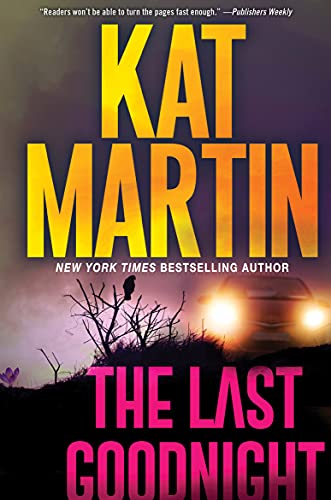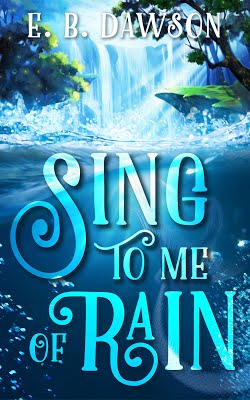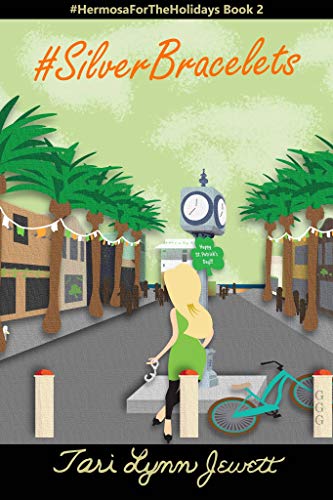Hemingway and Me: AI Editing
October 15, 2020 by Rebecca Forster in category The Write Life by Rebecca Forster tagged as #writingtips, an editors work, Craft, self editing, softwareprograms, writing style Last month I was excited to share that I signed with Wolfpack Publishing, an online publisher. I never thought I would do that (check September to see why I did). This month, I’m having another never-say-never moment. I purchased an Artificial Intelligence editing program called Hemingway.
Last month I was excited to share that I signed with Wolfpack Publishing, an online publisher. I never thought I would do that (check September to see why I did). This month, I’m having another never-say-never moment. I purchased an Artificial Intelligence editing program called Hemingway.
Why I shelled out $20 for Hemingway
A friend recommended the program. It was inexpensive. I am always looking for ways to improve my writing.
What is Hemingway?
It is an intelligent assistant for the writer who wants to improve their style. Hemingway cannot replace an excellent editor. In the early stages, guidance on foundational work is essential. No computer program can analyze characterization, plotting, inconsistencies, theme etc. the way a human can. It will not check for grammar or spelling.
What I like about Hemingway.
Hemingway made me think. The app ‘believes’ that simple is better. The program color codes perceived style problems in the manuscript. Purple indicates hard to read sentences, yellow very hard to read, blue is adverbs, and green is passive voice. The app also highlights phrases that have simpler alternatives.
More often than not, I heeded Hemingway’s advice. Yes, some of my sentences were convoluted. Yes, there were other ways describe action without a word that ended in LY. There were also times I didn’t change a sentence. Yes, that passive voice was necessary. Thank you, Hemingway.
What are the drawbacks of Hemingway?
Blogs, articles, and short pieces might find Hemingway more helpful than the novelist. I uploaded chapter by chapter so I wasn’t overwhelmed. It was tedious, but I’m glad I did it.
It is difficult to figure out how to transfer the edited work. I finally used the export as a word doc function. I did have to reformat each chapter. Not a problem, just an extra step.
Hemingway does not check spelling and grammatical errors. It would be a nice addition to the program.
Do I recommend Hemingway?
Yes. It is well worth $20. This program made me stop, think, revise, and it gives me reasons why I should pay attention. Because I will have a cleaner manuscript, it will save my real life editor time and therefore save me money on the back end. For traditionally published authors, your editor will be very pleased with the smooth submission.
Bottom Line for Hemingway
I recommend that all writers add Hemingway to their tool box. It is a small investment for a big return on how you look at your writing.
P.S. Yes, I did edit this piece in Hemingway. Here is the link.
THE HORRIBLE, TERRIBLE, AWFUL ‘R’ WORD
August 15, 2019 by Rebecca Forster in category The Write Life by Rebecca Forster, Writing tagged as Research for Writers, words, writing style
I’ve been thinking a lot about redundancy in the last week because I am editing a book that has been a long time in coming. I want the fans that have been waiting for this book to be pleased, as much as I want new readers to be impressed. I was able to recapture the series character voices, the plot was solid, but something was amiss with the writing.
While I was redlining the phrase ‘she turned her head’ for the twenty-fifth time, I realized that much of my description was redundant. I’ve suffered through this before, but this time instead of instead of soldering on I set aside my work and went for the dictionary. The definition of the word redundant was richer and more nuanced than I realized and each definition could be applied to my work.
Redundancy, as I understand it, is characterized as a similarity or repetitiveness. This made sense in terms of the edit I made to delete a recurring phrase. The dictionary further defined the word as describing something exceeding the normal, superfluous, and containing excess. Finally, redundant may be used to describe the profuse or lavish. These definitions were inspiring when applied to the craft of writing. In fact, I realized my WIP suffered greatly from redundancy.
Always chasing a higher word count, I was excessive in my use of conjunctions, verbs and adverbs. My style was buried under unnecessary words and phrases. Each passage became overly formal, lacking grace and fluidity. I had a tendency to say the same things in different ways as if my reader wouldn’t get the point the first time. My love of alliterations, similies, idioms and hyperbole were profuse and lavish to the point of distraction.
The bottom line is this: by attempting to create a memorable work I had, instead, created a book that would be unnecessarily difficult to read. The red pen had already been put to good use, but now I am making the next pass with all the definitions of redundancy top of mind. Already my writing is more precise, the characters are freed from the weight of unnecessary dialogue, and the descriptions of time and place are clearer.
It’s true that you learn something new everyday, and that’s one redundancy I can live with.
3 1 Read moreAffiliate Links
A Slice of Orange is an affiliate with some of the booksellers listed on this website, including Barnes & Nobel, Books A Million, iBooks, Kobo, and Smashwords. This means A Slice of Orange may earn a small advertising fee from sales made through the links used on this website. There are reminders of these affiliate links on the pages for individual books.
Search A Slice of Orange
Find a Column
Archives
Featured Books
THE LAST GOODNIGHT
With another body turning up, one woman is hot on the trail of a killer . . .
More info →SING TO ME OF RAIN
An innocent naiad. A wounded boy. An adventure that will change their lives forever.
More info →OPERATION SECOND CHANCE
His guilt tore them apart
Can the truth set them free?
Newsletter
Contributing Authors
Search A Slice of Orange
Find a Column
Archives
Authors in the Bookstore
- A. E. Decker
- A. J. Scudiere
- A.J. Sidransky
- Abby Collette
- Alanna Lucus
- Albert Marrin
- Alice Duncan
- Alina K. Field
- Alison Green Myers
- Andi Lawrencovna
- Andrew C Raiford
- Angela Pryce
- Aviva Vaughn
- Barbara Ankrum
- Bethlehem Writers Group, LLC
- Carol L. Wright
- Celeste Barclay
- Christina Alexandra
- Christopher D. Ochs
- Claire Davon
- Claire Naden
- Courtnee Turner Hoyle
- Courtney Annicchiarico
- D. Lieber
- Daniel V. Meier Jr.
- Debra Dixon
- Debra H. Goldstein
- Debra Holland
- Dee Ann Palmer
- Denise M. Colby
- Diane Benefiel
- Diane Sismour
- Dianna Sinovic
- DT Krippene
- E.B. Dawson
- Emilie Dallaire
- Emily Brightwell
- Emily PW Murphy
- Fae Rowen
- Faith L. Justice
- Frances Amati
- Geralyn Corcillo
- Glynnis Campbell
- Greg Jolley
- H. O. Charles
- Jaclyn Roché
- Jacqueline Diamond
- Janet Lynn and Will Zeilinger
- Jaya Mehta
- Jeannine Atkins
- Jeff Baird
- Jenna Barwin
- Jenne Kern
- Jennifer D. Bokal
- Jennifer Lyon
- Jerome W. McFadden
- Jill Piscitello
- Jina Bacarr
- Jo A. Hiestand
- Jodi Bogert
- Jolina Petersheim
- Jonathan Maberry
- Joy Allyson
- Judy Duarte
- Justin Murphy
- Justine Davis
- Kat Martin
- Kidd Wadsworth
- Kitty Bucholtz
- Kristy Tate
- Larry Deibert
- Larry Hamilton
- Laura Drake
- Laurie Stevens
- Leslie Knowles
- Li-Ying Lundquist
- Linda Carroll-Bradd
- Linda Lappin
- Linda McLaughlin
- Linda O. Johnston
- Lisa Preston
- Lolo Paige
- Loran Holt
- Lynette M. Burrows
- Lyssa Kay Adams
- Madeline Ash
- Margarita Engle
- Marguerite Quantaine
- Marianne H. Donley
- Mary Castillo
- Maureen Klovers
- Megan Haskell
- Melanie Waterbury
- Melisa Rivero
- Melissa Chambers
- Melodie Winawer
- Meriam Wilhelm
- Mikel J. Wilson
- Mindy Neff
- Monica McCabe
- Nancy Brashear
- Neetu Malik
- Nikki Prince
- Once Upon Anthologies
- Paula Gail Benson
- Penny Reid
- Peter Barbour
- Priscilla Oliveras
- R. H. Kohno
- Rachel Hailey
- Ralph Hieb
- Ramcy Diek
- Ransom Stephens
- Rebecca Forster
- Renae Wrich
- Roxy Matthews
- Ryder Hunte Clancy
- Sally Paradysz
- Sheila Colón-Bagley
- Simone de Muñoz
- Sophie Barnes
- Susan Kaye Quinn
- Susan Lynn Meyer
- Susan Squires
- T. D. Fox
- Tara C. Allred
- Tara Lain
- Tari Lynn Jewett
- Terri Osburn
- Tracy Reed
- Vera Jane Cook
- Vicki Crum
- Writing Something Romantic
Affiliate Links
A Slice of Orange is an affiliate with some of the booksellers listed on this website, including Barnes & Nobel, Books A Million, iBooks, Kobo, and Smashwords. This means A Slice of Orange may earn a small advertising fee from sales made through the links used on this website. There are reminders of these affiliate links on the pages for individual books.







































